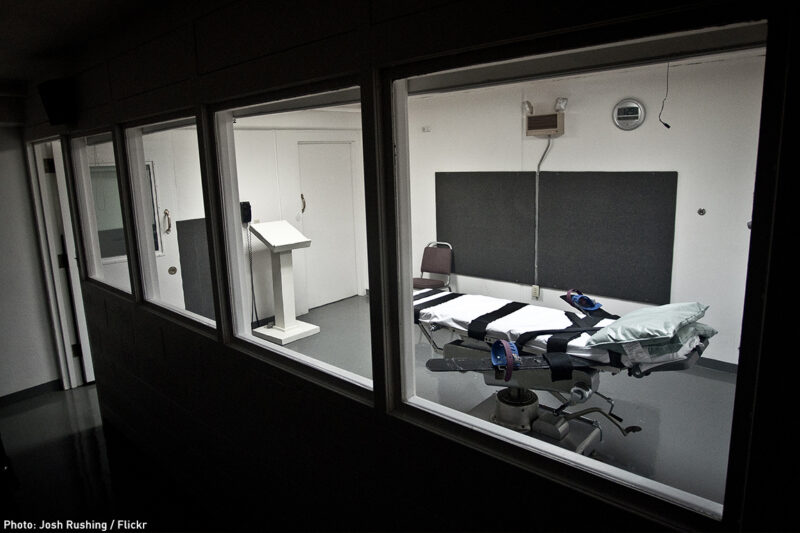
New Hampshire is the only state in New England that still puts people to death. The Northeast region, and much of the nation, has recognized capital punishment for what it is: a practice of a bygone era that is inherently unjust, often racially charged, and has resulted in the torture of individuals put to death.
This could change for New Hampshire on Sept. 13, when state legislators have an opportunity to override of a death penalty repeal bill. This is the latest of a long line of legislative attempts at repeal in the past decade. The trend is strongly in favor of repeal, and it is one that crosses party lines.
The question for New Hampshire is not if, but when.
There are Republicans, Democrats, independents, and libertarians who support repealing the death penalty, just as there are people in all these groups who do not. You cannot assume an elected official’s position based on that person’s party.
More than any other civil rights issue, the death penalty is personal for elected officials, seen through the prisms of morality, faith, or specific encounters with individual constituents. Many oppose it because it goes against their religious beliefs. Others oppose it because it costs the state far more money than life in prison. And some oppose it because an innocent person may be put to death.
When the New Hampshire Senate voted to repeal the death penalty in March, eight Democrats and six Republicans voted in favor of repeal. When the New Hampshire House voted in April, 146 Democrats and 77 Republicans voted for repeal.
Because of Gov. Sununu’s veto in June, the state’s House and Senate will reconvene on Sept. 13 and will have to override the veto with a two-thirds vote in each chamber. As that vote approaches, the message that most resonates across party lines, gender lines, and county lines is this: The death penalty is inherently imperfect and that imperfection takes an enormous human toll.
We know for a fact that people are wrongfully sentenced to death in our nation. We know this because over people on death row have been exonerated. What’s more, the process of executing someone can result in torture, which is unconstitutional. We know this from different experiences in different states, no matter the method of execution. There is always the risk that a so-called “humane” execution becomes cruel and unusual.
People are too often sentenced to death not because of the crime committed, but because of a poor legal defense, because of their race, or because of the race of the victim. A death sentence for a defendant often raises questions about why someone in similar circumstances, sentenced by a different jury, received life without parole instead. And regardless of how the death penalty is carried out, state employees who conduct the execution often experience post-traumatic stress disorder afterwards. This means that even an execution conducted without error causes harm.
Our criminal justice system is not infallible. We know this. We also know that society can function without the death penalty. Many states do. The overwhelming number of countries across the globe do.
It is impossible to guarantee that the death penalty is only applied to the guilty and only to those guilty of the most heinous crimes. It is also impossible to guarantee a person won’t be tortured while being killed by the state. The only way to ensure that someone is never wrongfully sentenced to death, wrongfully executed, or tortured during an execution is to repeal the death penalty.
And that’s the certainty the New Hampshire Legislature should provide on Sept. 13.


